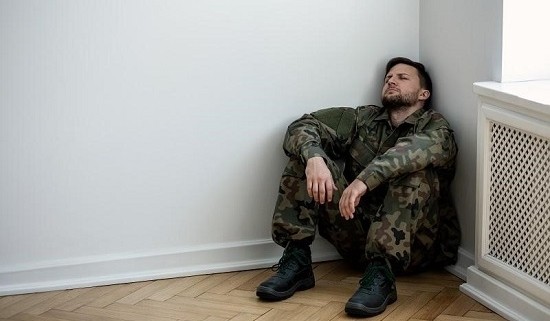Resources for Veterans With Mental Illness
One issue that should matter to every American citizen is the health and wellbeing of our military. Whether they are active duty or veterans, having important sources of help to manage a mental health disorder is imperative. These individuals have put their lives on the line in many cases, selflessly serving the country for our nation’s best interests. It just seems right that there are resources for veterans with mental illness, and for active duty military as well.
One of the biggest obstacles to getting help occurs while these men and women are still active and they refrain from getting necessary mental health treatment in fear of it harming their career or their security clearance privileges. Although the armed forces have established clear guidelines that state there is no negative repercussion for a soldier obtaining psychological treatment, the trepidation remains.
Unfortunately, untreated mental health disorders tend to escalate, which will have a negative effect on careers. In addition, the veterans assimilating back into civilian life who had never been treated for mental illness while active, return with more entrenched disorders. Thankfully, there are multiple resources for veterans with mental illness available, both in the private sector and through the Veteran’s Administration services.
Common Types of Mental Health Disorders in Veterans
In a startling study published in the 2014 issue of JAMA Psychiatry, it is reported that 25% of active military personnel had signs of a mental health condition. There seem to be a cluster of mental health conditions that our veterans are most prone to developing. In many instances, co-occurring substance abuse accompanies the mental health disorder, as the substances are initially used as a means of managing the symptoms. However, substance use disorder can also occur on its own, with no other coexisting mental health disorder, which can then lead to mental instability.
The most common mental health disorders seen in our veterans include:
- Trauma Disorder and Post-Traumatic Stress Disorder. Trauma disorder is the intense emotional response to a life-threatening, often unexpected, event, or in witnessing such an event and the fallout of it. Traumatic brain injuries are also present in some trauma disorder patients. When the traumatic event is not processed and overcome in over a month, leading to severe impairment in daily life and relationships, it is diagnosed as post-traumatic stress disorder (PTSD). About 12% of veterans suffer from PTSD. Trauma disorder and PTSD are treated with a combination of exposure therapies and antidepressants and/or anti-anxiety medications.
- Depression. About one in ten veterans struggles with depression, and suicide rates are about 20% higher than among the non-military general population, according to a report by the V.A. Depression is diagnosed when the individual exhibits five or more of the diagnostic criteria in the DSM-5. Treatment for depression consists of antidepressant drug therapy and psychotherapy. About 50% of patients with depression will not be helped by the antidepressants, known as medication-resistant depression. These individuals may benefit from alternative treatments such as transcranial magnetic stimulation (TMS), a brain stimulation therapy.
- Anxiety Disorder. Symptoms of generalized anxiety disorder (GAD) are seen in high numbers of veterans who are struggling with readjusting to civilian life. The V.A. has reported a stunning 327% increase in anxiety disorder among military personnel between the years 2000 and 2012. Anxiety disorder is treated with a combination of psychotherapy and benzodiazepines, as well as lifestyle changes to reduce stress. Holistic therapies are helpful in promoting relaxation also.
- Substance Use Disorder. Drug or alcohol abuse is a common co-occurring disorder with these mental health disorders. Treatment for a substance use disorder involves detoxification and rehabilitation. In addiction treatment the dual diagnosis of a coexisting mental health disorder, if applicable, will be treated simultaneously for best results. Treatment involves cognitive behavioral therapy, group therapy, medication management, relapse prevention planning, learning new coping skills, and 12-step programming.
TMS Therapy for Depression and PTSD
In addition to the traditional resources for veterans with mental illness, there is an alternative therapy that has shown to be highly effective for depression and co-occurring anxiety, PTSD or substance use disorders: transcranial magnetic stimulation (TMS). This is a noninvasive therapy that uses magnetic fields to reach the sluggish neurotransmitters in the prefrontal cortex. TMS therapy causes electrical currents to stimulate these slow-acting brain cells and, over the treatment regimen of 4-6 weeks, rebalance brain chemistry. TMS is both safe and effective and there is no down time required, making it easily accessible.
Anew Era TMS & Psychiatry Provides TMS Therapy for Veterans
Anew Era TMS & Psychiatry is a leading expert resource for veterans with mental illness, providing an alternative treatment option for depression and PTSD. Used as a stand alone treatment for veterans who are medication-resistant, or as an adjunct therapy to enhance the effects of antidepressants, TMS therapy offers hope to thousands. For more information about whether you are a candidate for this promising treatment option, please connect with Anew Era TMS & Psychiatry today at (888) 503-1549.





